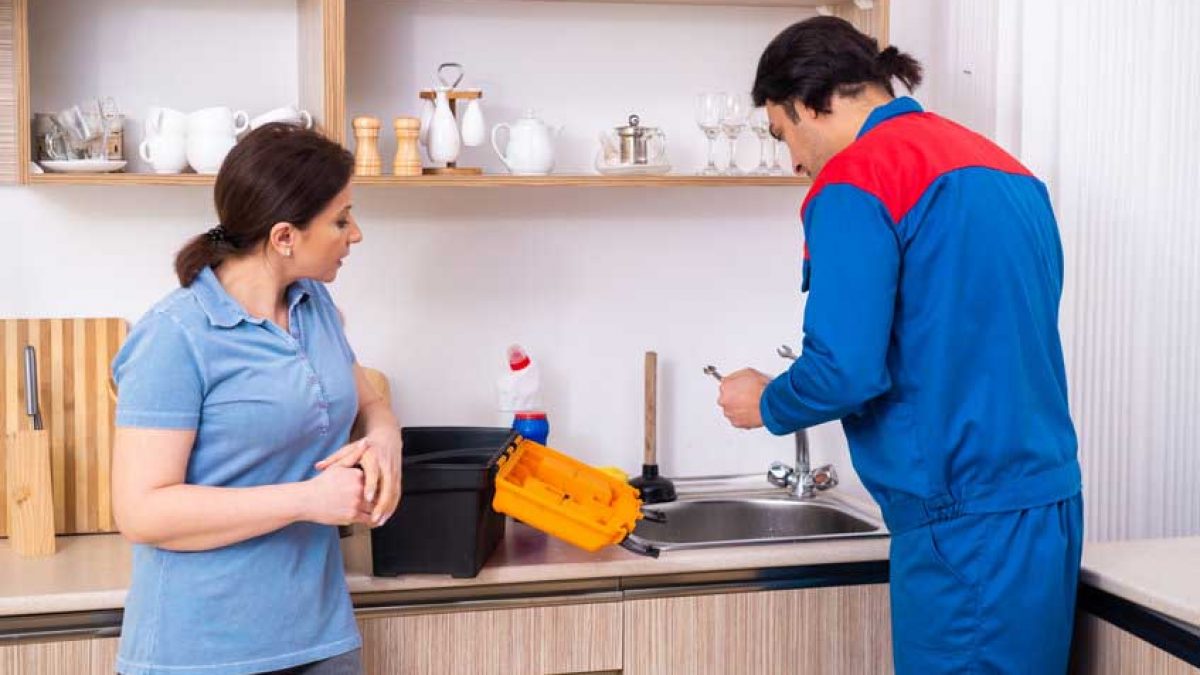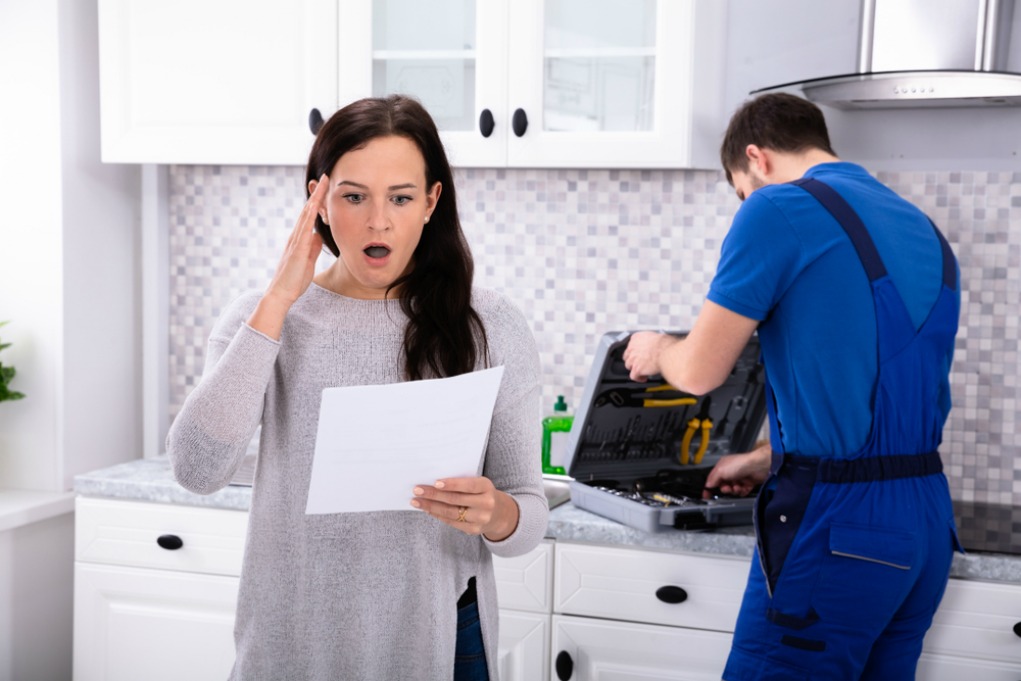Expert Guidance on Dealing with Plumbing in Older Homes
Expert Guidance on Dealing with Plumbing in Older Homes
Blog Article
This great article underneath pertaining to Plumbing Issues in Older Properties and How to Fix Them is definitely captivating. Don't bypass it.

Older homes often feature appeal, personality, and history, however they can additionally bring a host of plumbing problems. Whether you're dealing with maturing pipes, low water pressure, or leakages, understanding how to resolve these typical problems is critical to preserving a risk-free and functional home. In this guide, we'll check out the typical pipes challenges encountered by older homes and supply useful remedies to keep your pipes in top form.
Understanding Common Plumbing Concerns
Aging Pipes
Among the most typical concerns in older homes is aging pipelines. Depending upon the period in which your home was built, the pipelines might be made from materials that have actually degraded over time, such as galvanized steel, cast iron, and even lead. These products can corrode, end up being weak, or develop leakages, resulting in water damages and possible health hazards.
Water High Quality Screening
Older pipes can impact the quality of your water. Conduct a water high quality examination to check for contaminants such as lead, corrosion, or various other impurities that might be presented by aging pipes.
Solutions for Usual Pipes Issues
Replacing Aging Pipelines
If your home has old, deteriorating pipes, think about changing them with modern materials like copper or PEX. This can be a considerable financial investment, but it will stop future concerns and boost the safety and dependability of your plumbing system.
Dealing With Low Water Pressure
To repair low water pressure, begin by cleansing or changing old components and removing mineral buildup in the pipes. If the issue continues, it may be needed to change areas of rusty pipelines.
Fixing and Changing Leaking Pipes
For small leakages, you can utilize pipeline clamps or epoxy putty as a momentary solution. Nonetheless, it's ideal to change leaking pipelines completely to prevent additional damages.
Updating Components
Updating old components to modern-day, water-efficient versions can boost your home's pipes performance and lower water consumption. Look for components with the WaterSense tag for the best efficiency.
Handling Pipeline Deterioration
If your pipelines are rusted, replacing them with corrosion-resistant materials like copper, PVC, or PEX is the best remedy. Normal inspections and water quality upkeep can aid stop even more corrosion.
Low Water Pressure
If you're experiencing low tide stress, it could be due to natural resources, deterioration inside the pipelines, or old fixtures that are no longer functioning successfully. This can be a significant hassle, especially in locations like showers and sinks.
Dripping Pipelines
Leaks are an additional constant problem in older homes, frequently caused by rusty or worn-out pipes. Also little leaks can bring about considerable water damage, mold and mildew development, and increased water expenses otherwise addressed quickly.
Obsolete Components
Out-of-date plumbing components such as faucets, commodes, and showerheads not only look old yet may also be much less effective, vulnerable to leaks, or incompatible with contemporary plumbing requirements.
Pipe Deterioration
Rust is an usual issue in older pipelines, especially those made from galvanized steel or actors iron. Corroded pipes can limit water circulation, trigger staining, and eventually bring about leaks or pipeline bursts.
Analyzing the Condition of Your Pipes
Evaluating Visible Pipelines
Beginning by examining any kind of noticeable pipes in your home, such as those in cellars, crawl spaces, or under sinks. Search for indications of deterioration, leakages, or corrosion, which can indicate underlying issues.
Looking for Leaks
Check for leakages by inspecting locations around taps, commodes, and under sinks. You can additionally check your water meter prior to and after a duration of no water use to identify covert leakages.
When to Call a Specialist
While some pipes issues can be managed with do it yourself solutions, there are times when it's finest to employ a professional. If you're taking care of major leaks, substantial deterioration, or are unsure regarding the problem of your pipelines, a licensed plumbing professional can provide professional evaluation and fixing.
Preventive Upkeep Tips
Regular Evaluations
Regularly inspect your plumbing system for indications of deterioration. Capturing problems early can stop pricey repair work down the line.
Water Pressure Policy
Ensure your water pressure is within the suggested variety to prevent worrying your pipelines and components. A plumbing can install a pressure regulator if needed.
Water Quality Maintenance
Set up water filters or softeners if your water quality is poor. This can safeguard your pipes and fixtures from damage brought on by hard water or contaminants.
Proactive Pipeline Substitute
If your home has older pipelines, think about positive replacement before major concerns occur. This can save you from emergency situation fixings and water damage.
Conclusion
Managing pipes problems in older homes requires a mix of caution, precautionary upkeep, and prompt upgrades. By recognizing the typical difficulties and knowing when to look for expert assistance, you can guarantee your plumbing system stays functional and reliable for several years ahead.
Common Plumbing Issues in Older Homes
Pipe corrosion
Pipe corrosion is a common plumbing issue in older homes. Several factors can cause pipes to corrode:
Water: Ironically, water is the number one cause of pipe corrosion. When water seeps into cracks in pipes, it can cause the metal to rust and break down, leading to leaks or even burst pipes.
Oxygen: Oxygen is another significant culprit in pipe corrosion. When oxygen interacts with water, it can cause the metal to oxidize and weaken.
Chemicals: Chemicals such as chlorine and fluoride can also contribute to pipe corrosion. These chemicals can react with the metal in pipes, causing them to break down over time.
Leaky pipes
Pipes that leak is one of the most common plumbing issues plaguing residents of older houses. While a small leak may not be a problem initially, it can lead to significant problems if left unaddressed. In addition, water damage can be very costly to repair and may cause damage to electric fixtures, promote mold growth and cause many other issues.
Worn-out fixtures
Older homes often have worn-out fixtures which may need replacement. Over time, the finishes on fixtures can wear down, exposing the underlying metal to corrosion. This can cause fixtures to leak or even break completely. It s best to have a professional plumbing contractor regularly inspect the fixtures in older homes and replaces them if necessary.
Faulty water heaters
A leaky water heater can cause severe damage to the home as it can be both a flood and fire hazard. Call a plumber immediately if it appears that the water heater might be leaking.
If the heater isn t working correctly, it could be because the pilot has gone out. The pilot light going out may indicate gas supply issues or leaks. It is also worth checking the thermostat to see if it needs to be adjusted.
If the water heater is making strange noises, it could be due to sediment buildup in the tank. Sediment can interfere with the heating elements and cause them to overheat. Overheating can damage the tank and shorten the lifespan of the water heater.
https://www.norfleetfamilyplumbing.com/blog/common-plumbing-issues-in-older-homes

Hopefully you enjoyed reading our part about Main Plumbing Issues Found in Old Houses. Thanks a ton for taking a few minutes to read our short article. Sharing is nice. One never knows, you might be doing someone a favor. I praise you for being here. Come back soon.
Go Deal Report this page